We cannot let violence silence our daughters

Earlier this year, we got united for a fleeting moment for an extraordinary reason: the tragic rape and murder of an eight-year-old girl shattered our complacency and forced us out onto the streets. Our collective anger found sympathetic ears in the government and its allies, who joined our rallies and assured us that justice would be delivered promptly, going beyond hollow promises.
The girl was laid to rest. The authorities made several arrests. The apolitical nature of the crime allowed people to come together. In retrospect, we can now view the impressive promise of swift trials as a crisis management strategy. If we had exposed, analysed, and addressed some of the hidden issues of patriarchy, the child's family would have received justice.
In the past, numerous rape incidents connected to power dynamics occurred. One might have expected that after the revolutionary change last year, there would be some relief. Instead, we were alarmed by the sudden rise of moral policing that started viewing women in public as an anathema. Alongside news of public beatings and humiliation of women, a series of leaked videos, audio clips, and testimonies of gender-based violence have emerged. The façade of patriarchy has begun to crumble as more incidents of sexual violence are reported. Some of the instances came from within certain party circles, bringing déjà vu into currency. Men with connections, standing, and power are caught on record harassing women, boasting of sexual conquests through leaked videos, and manipulating the legal system. Every time another news story of rape or harassment comes to the surface, we are compelled to contemplate the innumerable others whose agony remains unseen. Some of them suffered in silence or compromised. Take the instance of a celebrity marrying the woman who had accused him of raping her—at the jail gate—last month.
The problem of sexual abuse is not new. And it is not unique to Bangladesh either. But somehow, its spiral into normalisation has taken on dangerous new forms. A man who allegedly owed the victim's brother some money assaulted and even allegedly raped a woman while visiting their paternal home in Muradnagar, Cumilla. A recorded clip of it was later released on social media. Instead of condemning rape as a crime, there were attempts to politicise it. The political affiliation, the girl's estranged status, and minority identity dominated the discourse more than anything else. By the time the High Court ordered the video to be removed, the damage was done.
We have developed a knack for justifying or normalising sexual violence. We know how to explain such violence by referring to a girl's clothing (even if a girl in a burqa or an eight-year-old child can fall prey to male lust); or her desire to join friends for a social outing or an excursion; or her audacity to speak her mind or mix freely with boys; or her family's alleged political alignment; or her fate of being born into the wrong sect in a largely homogenous society. Every day, women face trials both in private and in public. The sociocultural court sweeps aside their defence, and the verdict is essentially predetermined.
These justifications reflect entrenched cultural norms that predate any government and require long-term social re-education. We have heard endless talk shows and read equally endless op-eds, so we know that legal reforms alone can't uproot moral justifications. It doesn't help to know that rape is more than a lustful act. In our patriarchal culture, rape is a tool of retribution or symbolic domination. Our Biranganas, the rape victims of 1971, are living testimony of such a culture.
Last week, fate offered a rare blow to our patriarchal ego. An HSC examinee in Barishal narrowly escaped an attempted rape when an unexpected group intervened during the assault. Members of the local hijra community acted with courage and moral clarity, which many of us lack. They saved the girl who was crying for help, rescued her father whom the perpetrators had attacked in his own house, nabbed the main assailant, and handed him over to the police.
Deep down, we know we are failing to protect our own female citizens. We grudgingly approve of our "Indigenous" or "rural" girls playing and winning for us in international matches, but we try to control them the moment they are back in their localities.
What is perhaps more insidious than the acts themselves is the language that now surrounds them. The lexicon of liberation has deliberately opted for expletives. Once censored or spoken in private, the Bangla forms of sexual slurs have now become an indiscriminate part of daily lingo. They supposedly symbolise raw anger and youthful rebellion, or the rejection of hypocrisy. But let us not forget: words matter, and they have their consequences.
When the language of revolution echoes the act of assault, we need to be wary. What exactly are we revolting against when we characterise every ideological adversary in terms of sexual violence? We are in danger of replacing and articulating one kind of tyranny with another. The oppression of noise obscures the voices of genuine victims. And those cries are everywhere.
Revolution is fiery, but it does not have to be rage only. Revolution must embrace empathy. The courage that we have seen in our youth transcended the need for cameras to gain widespread recognition. As a society seeking civility and democratic norms, we must try to respond to every scream with equal attention. The tendency to use race, religion, or party affiliation as a controlling mechanism impacting the rights of women can never be healthy for any society.
This is not the freedom that our rebels of both 1971 and 2024 envisioned. Freedom now must not let our daughters be silenced, violated, or die.
Dr Shamsad Mortuza is professor of English at the University of Dhaka.
Views expressed in this article are the author's own.
Follow The Daily Star Opinion on Facebook for the latest opinions, commentaries and analyses by experts and professionals. To contribute your article or letter to The Daily Star Opinion, see our guidelines for submission.

 For all latest news, follow The Daily Star's Google News channel.
For all latest news, follow The Daily Star's Google News channel. 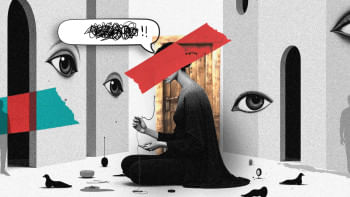
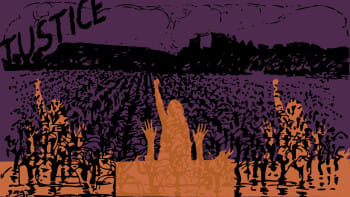



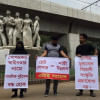
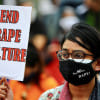

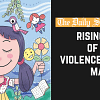


Comments